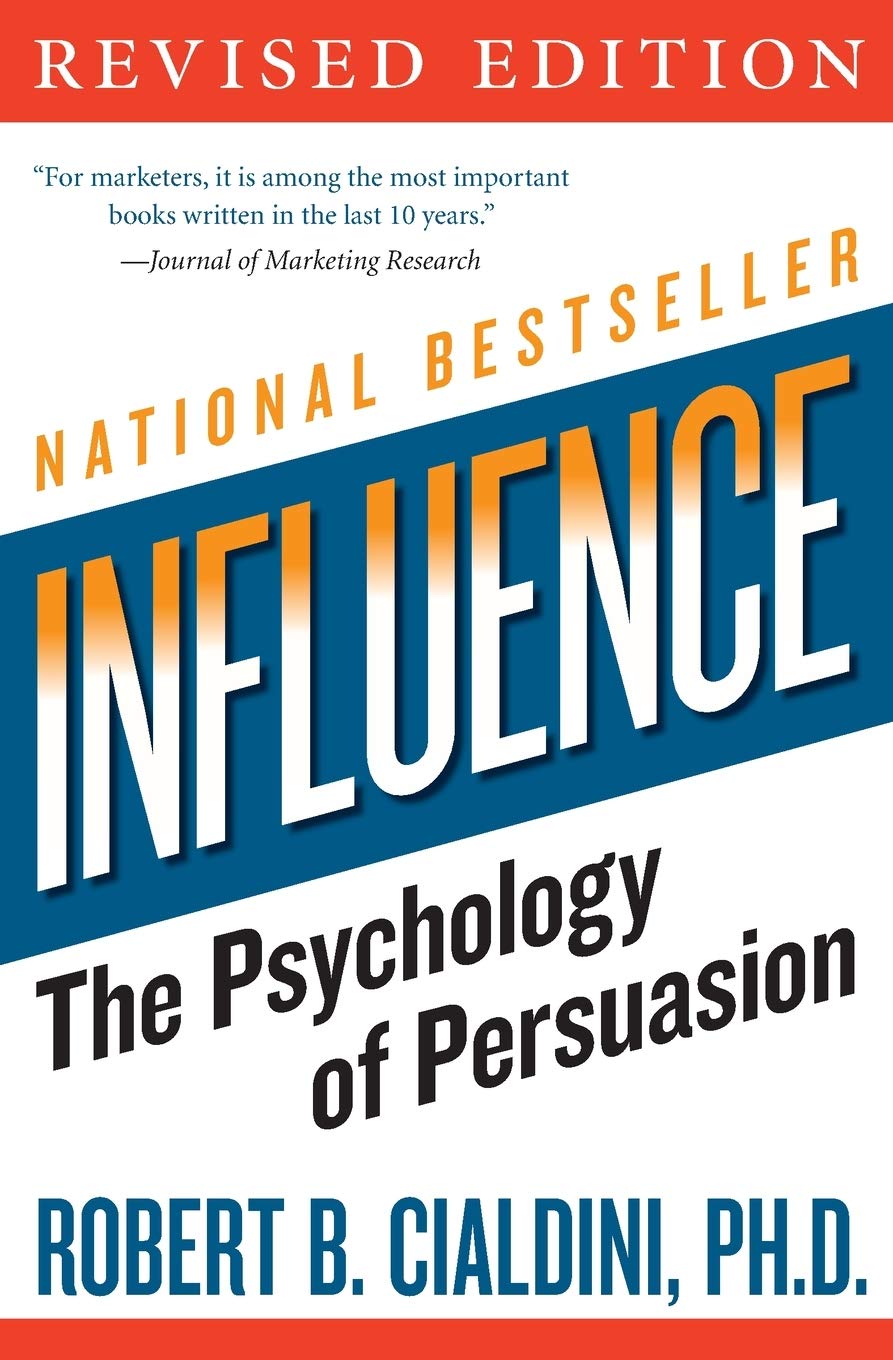Marketing bookshelf
Influence — The Psychology of Persuasion
By Sarah Zane
At its core, marketing is an attempt to persuade consumers to say, “Yes.” In his New York Times bestseller, Dr. Robert B. Cialdini breaks down the psychology of why people say yes and how to apply these principles in business and everyday life. Influence: The Psychology of Persuasion provides the reader with an in-depth study of the art of compliance. Backed by Dr. Cialdini’s 35 years of evidence-based scientific research, Influence offers marketers a comprehensive guide to the psychology behind elective human choice.
Influence teaches the six universal principles of persuasion and how to use them effectively:
Reciprocation: The internal pull to repay a favor. Basic psychology dictates that a favor be repaid in kind. As a marketer, you can harness this intrinsic human trait by offering your members small gifts, promotional deals and relevant, engaging content they can use. They will be socially obligated to return the favor.
Commitment and Consistency: The tendency to align present choices with past commitments. Once an individual has made a decision, they will stick to their guns, working consistently with that commitment to justify their choice. Human desire for consistency can turn a small commitment into a larger one. Use this principle in your marketing by showing new members how their choice to join your credit union aligns with their commitment to be financially responsible.
Social Proof: The propensity to make decisions based on what other people think is best. Humans crave social approval. Thus, we often let society dictate our choices. Social media is the ultimate display of the Social Proof Principle. Likes follow likes, and a post with thousands of shares is far more likely to be read than one that was shared just a handful of times. Use this extraordinary power to market your credit union and appeal to the human desire for social approval.
Liking: The inclination to comply with requests from people we know and like, and from those who like us in turn. The Liking Principle suggests that we are quick to agree to requests from those we know well and like—and just as quick to comply when the request comes from someone we know likes us. Use this principle in your marketing by showing your members how much you like them. Make it a point to reach out to members when they celebrate milestones, remember small details about their lives and show true empathy when they are working through a financial challenge. Similarly, get your members to like you by continuing to provide excellent, personalized service.
Authority: The likeliness to be persuaded by those we view as authorities, who carry greater knowledge, experience or expertise. Agreeing with the position of one who knows best makes a consumer feel smart, safe and secure in their decision. Use this principle by displaying your expertise on all financial matters. Keep your website, blog and social media platforms full of relevant, useful content, and make sure your frontline staff is fully informed about all your products and services.
Scarcity: The human desire to want more of what is less available. This principle is a classic in traditional marketing, where consumers are urged to “Buy Now!” because there is only a limited supply of an advertised product. Credit unions can harness this behavior to their benefit by running promotional events with limited availability.
Influence is a treasure trove of valuable insight into human psychology and a useful tool for the forward-thinking marketer who wants to up their game and boost their chances for success.



